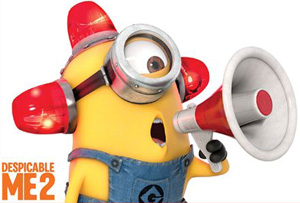Estimated reading time: 5 minute(s)
 “You’re a human being, not a human doing!”
“You’re a human being, not a human doing!”
Perhaps you’ve heard, or read that somewhere? I have. It’s clever, and correct—albeit somewhat cliche. A quick search of the web will confirm its ubiquitous usage.1
The reason for such widespread repeating? We tend to focus on the things we do, more than the things we are.
It creeps into every area of life. It’s a subtle form of prejudice, you might say. You’ve likely also heard the verse, “People judge by outward appearance, but the Lord looks at the heart.”2 It’s in our nature to make snap judgments based on what we can see on the outside. And though what is visible does proceed from the invisible character underneath, things are not always what they seem.
And so we have this focus on the external—the “doings”.
One of the first questions we ask when meeting someone is, “So what do you do?” Obviously this is an innocent question, meant to spur further conversation, but it does reveal the emphasis on what we do, rather than who we are—our character, our being.
Is there a distinction? Can we be something and not do that? Or, can we do something without being that?
Good questions, but perhaps this is better: Which has more lasting importance, what we do, or who we are?
Somehow we are frequently tricked into focusing on the former.
(Maybe the best question is, “To be or not to be”… I mean, Shakespeare said THAT is the question… but I digress.)
I know as a parent I often fall into the trap of correcting my kids’ behavior, rather than remembering to get to the heart of what is causing their actions. And I’m not talking about making excuses here: Hitting your sister can not be excused, even if you are tired or hungry. What is important is remembering that Sister is a person, and when you’re being considerate of others (note the use of the word “being”), I’m pretty sure you can’t hit them.
It’s not limited to parenting, of course. In our own lives we know there are things that we do (or don’t do) that bother us, and perhaps we are wishing we had the power to correct those things. But instead of focusing on correcting the actions—the “doings”—often the solution is a deeper trust in Father to provide for us. We lie because we think the truth might damage our reputation, we take what is not ours (steal) because we don’t think we’ll be OK without it, and so on.
But the heart is what matters. Who I am is more important than what I do, or do not do.
I believe we, Christians, have for so long seen life with Jesus as a code of ethics (meaning a list of acceptable behaviors), that we don’t know how to be. We judge others—and our own selves—on how we conduct ourselves.
But Jesus didn’t say “get this right”, he said love. He said, Be glad you realize your need for your Father, and that you long for justice and mercy and peace, even though you are persecuted for this. It means you are mine.3
It is all about being, not doing.
The other side of the coin, of course, is that who we are determines what we do. That is most certainly true. And this is the key. The cause of the “doing” comes from our “being”.
This is so important.
That’s why Paul said:
“Don’t copy the behavior and customs of this world, but let God transform you into a new person by changing the way you think. Then you will learn to know God’s will for you, which is good and pleasing and perfect.”4
Let God transform you. Changing the way you think. Being transformed from within. This is what matters. It’s what comes first. Our actions, our behaviors—flow from this transformation, and thus, are not the primary cause of it.
Paul also said:
So why do you keep on following the rules of the world, such as, “Don’t handle! Don’t taste! Don’t touch!”? Such rules are mere human teachings about things that deteriorate as we use them. These rules may seem wise because they require strong devotion, pious self-denial, and severe bodily discipline. But they provide no help in conquering a person’s evil desires.
Exactly. It’s not helpful to focus on (correcting) the things we do. Changing behavior does not change our “evil desires”.
The only answer is a common refrain here at this blog: Know the one true God, and Jesus Christ whom he sent.
Everything else flows from this.
You are a Child of God. You are his beloved. You are whatever unique piece of your being makes you “you”.
So rest, and be. The “dos” will flow from your being.
Note: The Minion pictured at the top of this post has nothing at all to do with the content of this post. The newly-released movie, Despicable Me 2, features a scene (highlighted in their trailer) of a Minion making the european siren sound, which in Minion-ese comes out, “bee-doh, bee-doh, bee-doh”. AND, which is also hilarious. See? 🙂
- Strangely, after a reasonably thorough search of the interwebs, I was unable to determine its origin, or any consensus on a first use. How odd. ↩
- From 1 Samuel 16:7. ↩
- Not a direct quote, but my own summary of Jesus thoughts from Matthew 5. ↩
- It’s interesting to note that a few translations of Romans 12:2 take what is written here about being able to know the will of God and make it say “so that you can do”. Our bias towards the external is revealed in the translations from the original language. Fascinating! ↩
